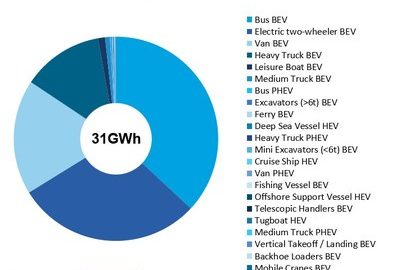RMK MARINE, one of the leading companies of the Turkish shipbuilding industry is implementing a new project which will use environmentally friendly and renewable energy resources. In this context, RMK MARINE won an international tender opened for a commercial sailing Ro-Ro vessel which will operate almost entirely by the wind energy and be one of the first examples in the world in its segment and it signed a contract for the construction of the vessel with the French company Neoline Armateurs on 28 November 2022. The said contract entered into force on 6th of January 2023, following the fulfillment of the required conditions and the final agreement was announced to the public at a ceremony held in Nantes, France, with the participation of the parties. Continue reading
Category Archives: Transport
Artemis Aerospace: how to cure a fear of flying – six tips for stress free travel
As a former commercial pilot, it wasn’t unusual to hear of passengers experiencing anxiety or panic attacks during a flight. While cabin crew are trained to calm and reassure passengers, it can be a distressing experience for the sufferer, and unsettling for fellow travellers. Continue reading
INRIX: Return to Work, Higher Gas Prices & Inflation Drove Americans to Spend Hundreds More in Time and Money Commuting
INRIX, Inc., a world leader in mobility analytics and connected car services, today published the 2022 Global Traffic Scorecard that identified and ranked congestion and mobility trends in more than 1,000 cities, across 50 countries. Chicago (155 hours), Boston (134 hours), and New York (117 hours) lost the most time to traffic congestion in the U.S. and were all in the top five for most congested cities in the world, alongside London (156 hours) and Paris (138 hours). Continue reading
Artemis Aerospace: seven weird and wonderful careers in aviation
Aviation is big business. It’s estimated the industry supports over 10 million jobs worldwide, generating billions of pounds of GDP. Although badly hit by the pandemic, aviation is recovering well, with passenger numbers climbing back towards 2019 levels. Commercial pilots and cabin crew are busy again, but so are many other industry professionals. Here are seven surprising aviation jobs you might never have heard of… Continue reading
EV Chargers: How many do we need?
Supporters of vehicle electrification point to the more than 140,000 EV charging stations currently deployed across the United States – including Level 2 AC and Level 3 DC fast chargers and both public and restricted access units – as a sign that a budding system to support our transportation transformation is in place. Continue reading
This Week in Transportation News: 11 Stories You Need to See
With thousands of press releases published each week, it can be difficult to keep up with everything on PR Newswire. To help journalists covering the auto and transportation industries stay on top of the week’s most newsworthy and popular releases, here’s a roundup of stories from the week that shouldn’t be missed. Continue reading
BOSE AND VOLVO CARS: A NEW COLLABORATION IN SOUND
Today, Bose announces its first-ever sound system for Volvo Cars, bringing the power of Bose sound to the all-new, all-electric, and recently unveiled Volvo EX90. Available by early 2024, the Volvo EX90 represents the launch of a new collaboration between Bose and Volvo Cars that will extend to additional models in the coming years. Continue reading
The startup Nooka Space brings innovation to airport terminals by introducing the concept of flex office booths on demand
Nooka Space, the company who designed the first smart proximity office network in the world, back in 2020, introduces the concept of flex office on demand in airport waiting areas, to provide passengers with private spaces to work or relax, while waiting for their flight. As such, Nooka Space launches Nooka Air, a smart office booth designed to offer better airport experience during the waiting hours in terminals. Continue reading
S&P Global Mobility Special Report: A reckoning for EV battery raw materials
Geopolitical turbulence and the fragile and volatile nature of the critical raw-material supply chain could curtail planned expansion in battery production—slowing mainstream electric-vehicle (EV) adoption and the transition to an electrified future. Continue reading
30 Giga-Watt Hours of Electric Vehicle Markets Beyond Cars, Reports IDTechEx
Electric vehicle markets are growing globally – in total IDTechEx’s latest master electric vehicle report “Electric Vehicles: Land, Sea & Air 2022-2042” finds 35.7 million electric vehicles (EV) were sold in 2021 and predicts this will rise to over 74 million by 2030. Continue reading










